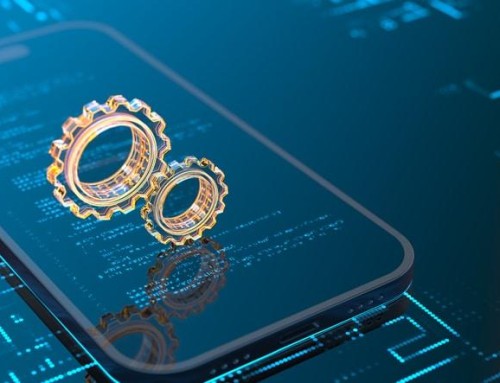Human beings have always had a passion for innovation. In the pursuit of greatness, the human race has become more and more efficient in every domain. In the last two centuries, the world progressed from an agricultural way of life to a highly industrialized and globally connected community. All of this progress was made possible by countless innovations that human beings considered a threat to their livelihood. The rise of modern technology in the 20th century gave rise to computers, which resulted in a global technological revolution. From there, it was only going forward. We witnessed the advent of the internet, the age of digitalization, social media, and now, Artificial Intelligence.
Ever since the beginning, Artificial Intelligence has had a significant role in various aspects of our digital lives. Currently, Artificial intelligence has caused mass hysteria due to a perceived threat to the sanity of people worldwide. Despite the fuss, history has shown that technology, no matter how advanced and futuristic, will always help bring more opportunities. We’ll talk about artificial intelligence, debunk the most common myths related to AI software development, and answer questions like “Will AI replace software engineers?”. Moreover, we’ll shed light on how software developers can adapt to the changing landscape of artificial intelligence development to become the real MVP in software development.
Rise of Artificial Intelligence: A Historical Standpoint
I often tell my students not to be misled by the name ‘artificial intelligence’ – there is nothing artificial about it. Artificial Intelligence is made by humans, intended to behave by humans, and, ultimately, to impact humans’ lives and human society.”
Fei-Fei Li, Chinese-American Scientist
Intelligence is what differentiates human beings from other living creatures. The advancement in science and technology bridged this gap by creating Artificial Intelligence. Something that could speak like humans, think like humans, imagine like humans, and function like humans, but at insanely fast processing speeds. At first instinct, any human being, in their right mind, is supposed to fear this creation that has the potential to disturb the balance of society.
The Dartmouth Conference in 1956 laid the foundation for the inception of Artificial intelligence (a term that had not been coined yet), called “Synthetic Intelligence” at that time. Then, Alan Turing tested this newly born “Artificial Intelligence” in contrast to human behavior and intelligence. Soon after, several Artificial intelligence models or neural architectures were developed over the years such as The Perceptron, designed and developed in 1958 by American psychologist Frank Rosenblatt. Later, the AI boom of 60s saw the development of AI programming languages such as LISP and Prolog. During the 90s, AI researchers had already developed language models including the Hidden Markov Model (HMM) and the Convolutional Neural Networks (CNNs) that could replicate and recognize human speech and aid in object detection and identification. Soon, the rise of big data paved the way for deep learning and aided in the globalization of AI and the development of many aggressive AI models, such as Large Language Models (LLMs) that include ChatGPT and Google Bard/Gemini. With the endless capabilities of the Artificial Intelligence models of today, many software developers risk their jobs being completely automated. Will AI replace software engineers? Well, that might not be the case actually.
AI in Software Development
Like every innovation the world has seen, if software developers keep them updated and learn to tame artificial intelligence, there’s nothing to worry about. Otherwise, history books are full of people who are scared of change.
To get started, let’s be clear: Artificial Intelligence has its limitations and cannot make the software developers go extinct – not yet, at least. The human mind possesses something Artificial Intelligence cannot have – creativity, intuition, and abstraction. All of these qualities are required to be an MVP in software development. While Artificial Intelligence could aid in certain aspects of the software development lifecycle, it cannot do the job entirely. There are many popular AI tools and frameworks that are being used in AI software development worldwide. Some are listed below:
- GitHub Copilot is a wonderful AI powered tool that can help speed up test automation developments and make debugging processes more efficient.
- ChatGPT Code Interpreter is another wonderful tool that can rewrite your code to decrease redundancies and improve efficiency.
- CodeMorph is another AI tool that allows you to seamlessly translate your code from one coding language to another.
While these AI tools are wonderful at speeding up the software development lifecycle, they have one thing in common: none of them can code from scratch. That’s enough to answer the argument whether AI will replace software developers or not.

Stay ahead in the AI-driven world with continuous learning and adaptation.
Myths about AI in Software Development
Anything that becomes the talk of the town gets associated with widespread myths and rumors. Same is true for artificial intelligence. According to Forbes, 75% users are concerned about rumors and misinformation related to AI. Following are some of the widespread myths related to AI and software development.
Myth 1. AI will take my job as a software developer
AI will NOT and CANNOT take the jobs of the software developers who are up to date with the modern trends and AI development. AI relies on the users to generate responses. Generating code for full-flued software would require the use to be a software developer too. Therefore, your job as a software developer is safe and AI will only help make your workflow more seamless.
Myth 2. People with no AI knowledge can’t use AI to help with software development
AI models like ChatGPT and Google Bard/Gemini are pre-trained Large Language Models. They don’t require any training or technical expertise to operate. Contrary to that, if you plan to train your own AI model, you’ll definitely have to have relevant expertise in the field. Pre-trained models can aid software development in many ways such as code interception, debugging, translation into other programming languages, and cleaning up the code.
How to Tame AI?
Taming AI is pretty simple and straightforward. You can streamline your software development lifecycle and speed up your workflow by taking help from AI tools. For example, you can use AI for code generation, bug detection and fixing, predictive analytics, and even code translations. By taking help from Artificial Intelligence, you can focus more on strategic and creative tasks, and, therefore, improve your productivity and innovation. Most software developers have already onboarded AI as their coding partner. As per Stack Overflow Developer Survey 2023, about 70% of developers are using AI in their software development endeavors.
Impact of AI on Software Development Jobs
Opposite to the rumors, the job market for software developers is thriving, and demand is increasing day by day. According to the US Bureau of Labor Statistics, the job market for software developers will grow by 25%, which is higher than many other jobs. Moreover, According to Forbes, the AI market is expected to be worth $407 billion by the end of 2027 and is expected to add a net 21% increase in the GDP of the United States. Consequently, 120 million workers will need retraining globally, according to the University of St. Thomas.
Things to Know to Stay Informed
According to Fobes, AI is forecasted to see a growth trajectory of 37.3% from 2023 to 2023. AI is not an enemy. Rather, it’s a revolution. Software developers who will adapt to the change in paradigm will see themselves grow, whereas those who will consider AI their enemy will cease to exist in the AI-driven world in the future. Following are some of the things you can do to stay informed with the changing landscape of global AI development
- Continuous Education: Take courses, workshops, and seminars related to AI to help keep your knowledge up-to-date.
- AI News and Research: Stay up-to-date with AI-focused publications and follow AI researchers on social media to have better insight into the latest developments.
- Networking: Join AI-focused forums and online communities to learn from others in the field.
- Hands-On Experience: Try AI models yourself and play around with prompts, whether professionally or as a hobby, to have a more practical experience of those AI models.
Conclusion
In conclusion, Artificial Intelligence is nothing but similar to many innovations that we’ve seen since the dawn of civilization. Like those innovations, Artificial Intelligence is here to assist us in becoming more efficient as a civilization. It’s a revolution, and those who will oppose it will have consequences. For AI software development, staying relevant is important to become the real MVP in software development because an AI-integrated future means embracing this inevitable change. Artificial intelligence is here to stay. It’s high time we accept it, and grow around it. In the end, those who will adapt, upskill, and continue to innovate will find AI to be the best ally, leading to unmatched progress and collaboration. However, AI is just a tool, and the tool requires a user. The efficacy of any tool depends on the skills, knowledge, and creativity of the humans behind it.




